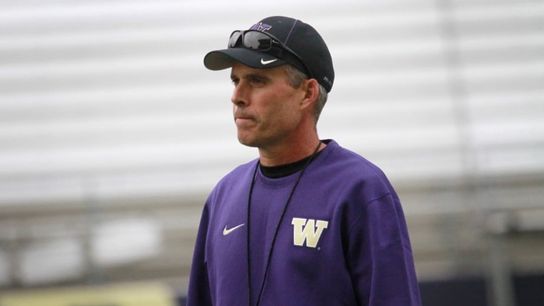Washington is off to a 9-0 start and a winner in its last 12 games, which has led Huskies brass to move to lock Chris Petersen up for the long, long term.
As Adam Jude reported for the Seattle Timeson Thursday evening:
Chris Petersen is in the process of negotiating a long-term contract extension with the University of Washington to remain the Huskies’ coach for the next decade, The Seattle Times has learned.
The extension could be for as long as 10 years, sources told The Times.
Petersen signed a 2-year extension just last Thanksgiving that will pay him $4 million from 2018-20, but the new 10-year extension would reportedly make Petersen the highest-paid coach in the Pac-12. Stanford's David Shaw presently holds that honor according to USA Today at a salary of just over $4 million; Petersen's salary currently sits at $3.6 million.
To get their coach's salary to the top of the Pac-12, Jude writes that Washington is considering "creative" options to fund Petersen's compensation package. The report doesn't elaborate, but a fellow Pac-12 school has provided a possible blueprint.
In 2014, Arizona announced extensions for AD Greg Byrne, head football coach Rich Rodriguez and head men's basketball coach Sean Miller in which each received shares in a master limited partnership provided by an anonymous Wildcats booster to an anonymous Wildcat-friendly company. At the time, Rodriguez and Miller were in line for payments of $6.188 million should they remain in Tucson until their respective shares vested in 2022.
The double-edged sword of this tactic is that those shares could either lead to major, generational wealth or be completely worthless by the time 2022 rolls around. But the positives here for Arizona and, potentially, Washington are tri-fold:
A) It incentives coaches to stick around for the long-term.
B) It further binds a coach to the local business community and the local business community to the coach.
C) If everything goes according to plan, the coach gets seriously paid without an extra dime coming out of athletics department coffers.
Obviously, we don't know if this is what Washington has in mind if indeed it desires to get "creative." But with the abundance of tech industry wealth in Seattle, the potential is definitely there.
